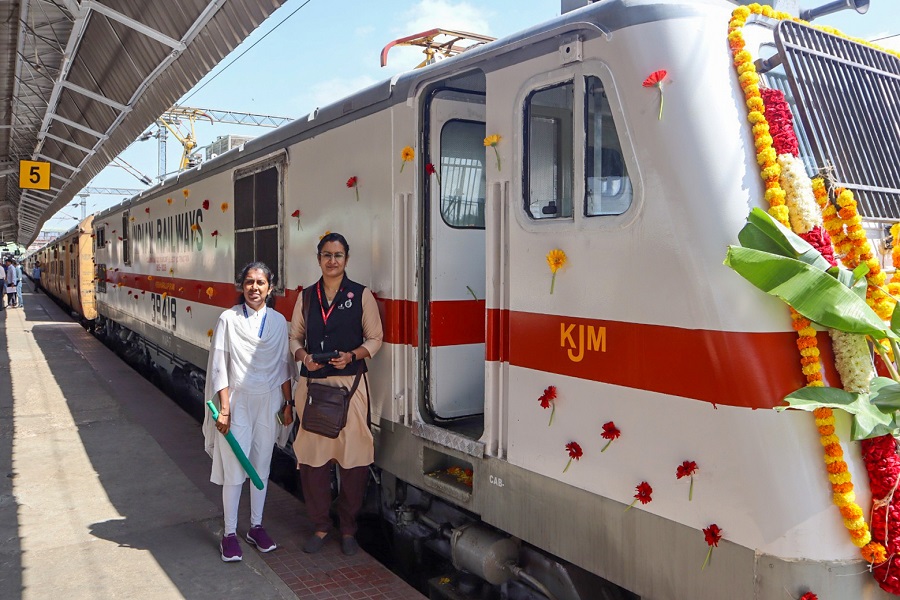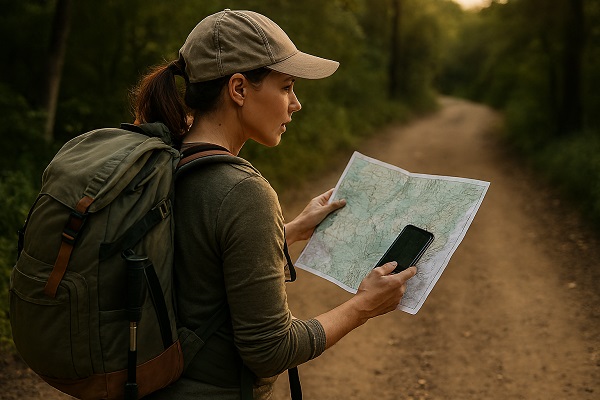The Rise of Solo Travel: Exploring the World on Your Own Terms

Solo travel has transitioned from a niche interest to a mainstream trend over the past few years. With more people opting to travel alone, the allure of exploring new destinations without the constraints of a group has never been stronger. Whether it’s for personal growth, cultural immersion, or simply the thrill of adventure, solo travel offers a freedom and flexibility that is hard to replicate when traveling with others.
In this article, we’ll delve into why solo travel is gaining popularity, the benefits it brings, and how you can plan your own solo adventure.
The Appeal of Solo Travel
In a world where busy schedules and social media can make us feel more connected than ever, the idea of traveling solo is alluring for several reasons. Here’s why solo travel is becoming an increasingly attractive option:
1. Personal Freedom
Traveling alone gives you complete control over your schedule. You’re free to make last-minute decisions, explore places at your own pace, and engage in activities that match your personal interests without needing to consider the preferences of others. The freedom to change your plans on a whim, whether to stay longer at a museum or hop on a train to a nearby city, is one of the greatest advantages of solo travel.
2. Increased Self-Awareness
When you travel alone, you're more likely to spend time reflecting and connecting with yourself. Being away from your regular environment allows you to gain new perspectives on your life, your goals, and your aspirations. Solo travel fosters independence and helps you discover new strengths and capabilities. It's an opportunity to break away from the routines that often dictate your life and experience a sense of empowerment and clarity.
3. Cultural Immersion
Traveling solo allows you to immerse yourself fully in the culture of a destination. Without the distractions of traveling with companions, you can interact more deeply with locals, try new foods, and engage in cultural practices. The more you explore on your own, the more you connect with the local way of life, which can lead to a richer and more authentic travel experience.
4. Building New Connections
Though you’re traveling alone, you’re not alone on your journey. Solo travelers often find that they meet more people and form deeper connections during their trips. Whether it’s bonding with a fellow traveler on a group tour, chatting with locals at a café, or connecting with people through apps that facilitate meet-ups, solo travel creates opportunities to meet like-minded individuals and build meaningful friendships.
Benefits of Solo Travel
While solo travel may seem intimidating at first, its benefits far outweigh any concerns. Here are some reasons why more people are choosing to travel alone:
1. Self-Reliance
Solo travel helps you develop self-reliance and problem-solving skills. From navigating foreign cities to handling unforeseen challenges like lost luggage or missed trains, traveling alone forces you to think on your feet and trust your judgment. These moments of overcoming challenges on your own lead to increased confidence and a sense of accomplishment.
2. Personalized Travel Experience
When you're traveling solo, the experience is completely tailored to your preferences. There's no need to compromise on your interests or activities. You can spend your days hiking, visiting art galleries, or indulging in local delicacies—all without needing to align your schedule with anyone else. Solo travel is your opportunity to create the ideal travel itinerary that reflects your interests.
3. Flexibility and Spontaneity
Solo travel allows you to be more flexible with your plans. If you decide to extend your stay in one city or make a sudden detour to a neighboring town, there’s no need to consult anyone else. This spontaneity is especially rewarding for travelers who enjoy the thrill of exploring new places on the fly.
4. Empowerment and Confidence
There's something deeply empowering about stepping into a new place alone. Solo travel forces you to push beyond your comfort zone, develop resilience, and trust in your ability to navigate unfamiliar situations. The sense of accomplishment after managing a solo adventure can significantly boost your self-confidence and make you more independent in your everyday life.
Overcoming the Challenges of Solo Travel
While solo travel has many benefits, it does come with its own set of challenges. Here’s how to overcome them:
1. Loneliness
Though solo travel often leads to meeting new people, it’s natural to feel lonely at times, especially during long stretches of travel. Combat loneliness by engaging in activities like attending group tours, staying in social hostels, or visiting cafes where you can interact with locals. Also, remember that technology allows you to stay connected with friends and family back home, helping you feel less isolated.
2. Safety Concerns
Safety is always a top priority when traveling alone. To minimize risks, make sure to do thorough research on your destination, stay in safe areas, and avoid risky situations. Always inform someone you trust about your whereabouts, and ensure your accommodations are secure. Many solo travelers also invest in travel insurance for added peace of mind.
3. Language Barriers
Language can sometimes pose a challenge when traveling solo. While many tourist destinations offer English-speaking services, learning a few key phrases in the local language can make your trip more enjoyable and help you connect with locals. Translation apps and phrasebooks are also great tools to bridge the communication gap.
Tips for Successful Solo Travel
To ensure that your solo trip is smooth and enjoyable, here are a few helpful tips:
- Research Your Destination: Get familiar with the culture, transportation options, and safety tips before you go. Knowing what to expect can help you navigate unfamiliar environments with ease.
- Stay Open-Minded: Solo travel often requires you to step outside your comfort zone. Stay open to new experiences, try unfamiliar foods, and interact with people you meet along the way.
- Pack Light: Since you’re carrying your own luggage, packing light is essential. Choose versatile clothing and only pack what you truly need.
- Keep Your Valuables Safe: Keep your passport, credit cards, and other valuables in a safe place. Use a money belt or anti-theft backpack to reduce the risk of theft.
- Trust Your Instincts: When traveling alone, trust your intuition. If something doesn’t feel right, remove yourself from the situation immediately.
Conclusion
Solo travel is more than just a way to see the world—it’s a transformative experience that can enhance personal growth, broaden your perspectives, and build lasting memories. By embracing the freedom and independence that come with traveling alone, you’ll not only discover new destinations but also uncover a deeper connection with yourself.
Whether you’re seeking adventure, reflection, or cultural immersion, solo travel offers the ultimate opportunity for exploration on your own terms.
























